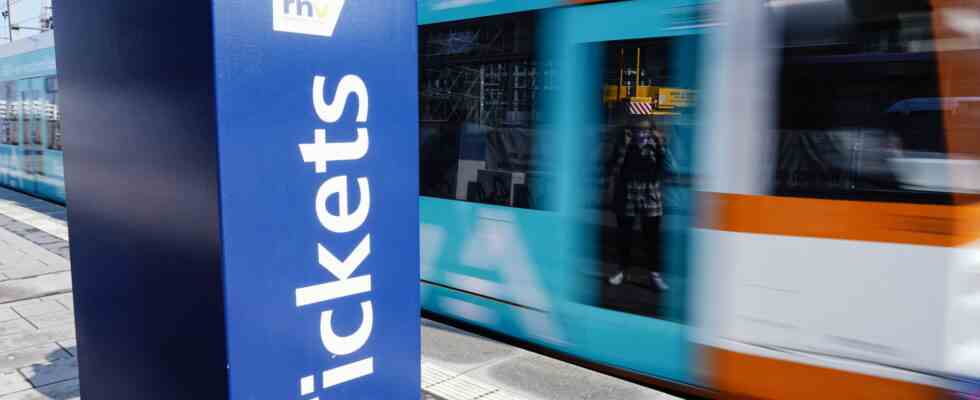FAQ
Status: 01/24/2023 05:01 a.m
The new “Deutschlandtempo” that Chancellor Scholz proclaimed does not appear to apply to the “Deutschlandticket”. Because here it hooks enormously. It is questionable whether the 49-euro ticket will come on May 1st. Who brakes?
the initial situation
Actually, passengers should have been able to travel with the “Deutschlandticket” for a long time – but the nationwide flat rate for buses and trains is still months away. The states blame Federal Transport Minister Volker Wissing. They accuse the FDP politician of blockade. Wissing, in turn, points to the countries. The countries and transport companies responsible for public transport are primarily responsible for the implementation of the ticket.
Today, Tuesday, the Association of German Transport Companies (VDV) is likely to comment on the chaos surrounding the new ticket on its annual Pk.
When will the 49 euro ticket come out?
Hard to say. The “Deutschlandticket” was originally supposed to start in early 2023. April 1st was the last time we were talking about it. Now passengers should be able to buy the ticket from April 3rd and use it from May 1st – that’s the plan.
After skepticism grew about the last targeted start date of April 1st, Minister Wissing recently made it clear: “For me it’s clear – no later than May 1st.” The Association of German Transport Companies (VDV) also emphasizes: “The industry would be ready to go by May 1st.”
Bremen’s mobility senator Maike Schaefer still believes that the start date is not certain. Detailed questions are still unresolved, said the Green politician.
A spokesman for the Federal Ministry of Transport recently did not want to commit to an introduction date. He merely expressed the expectation “that we will make quick progress here”. One is in the process of “clarifying various things” with the countries.
How is the ticket supposed to work?
The “Deutschlandticket” is intended as a subscription that can be canceled on a monthly basis. It should be valid nationwide for buses and trains in local and regional transport. Depending on the region, subscribers can take children, dogs or bicycles with them. SPD parliamentary group deputy Detlef Müller called for flexibility during the introductory phase: “Until a uniform nationwide regulation is found, it should be checked whether the previous local regulations for local transport subscriptions can apply on a transitional basis.”
Only digital or also on paper?
Federal Transport Minister Wissing is pushing for a purely digital ticket. However, there is a demand from the federal states to also offer paper tickets at least temporarily. They argue that not everyone is digitally fit enough or has a smartphone to buy a paperless ticket. These people would then be excluded.
Another advantage of the paper ticket would be that smaller associations and transport companies would have more buffers to implement a digital offer. The technical implementation is the responsibility of the federal states and the transport companies.
What about the legal framework?
The VDV points out that political decisions are still pending. The federal government must deliver. What is necessary is the nationwide tariff approval and an amendment to the regionalization law. According to information from Bremen, the Federal Council should decide on this on March 31st. Approval from the EU is still required. A ministry spokesman said that coordination with the European Commission on questions relating to state aid is currently in progress.
Likewise, there is still no regulation for revenue sharing, with which the fare revenue is distributed between different transport companies that recognize a common tariff.
How is the ticket financed?
In order for the federal states to participate in the flat rate, the federal government wants to assume half of the additional costs in the first year. However, there is still no common regulation for the following years.
The federal government has increased the annual subsidy, the regionalization funds, by one billion. Bremen’s mobility senator Schaefer again called for an additional 1.5 billion euros from the perspective of the federal states so that the climate targets in traffic are not missed.
Buses and trains in Germany are chronically lacking money. According to industry information, ticket sales only cover about half of the costs, the rest is covered by the public purse.
Individual federal states are planning to offer the 49-euro ticket for low earners or young people at a lower price, such as Bremen, Hesse or Saarland. Such a reduced offer is only available in Berlin. Nationwide, the Paritätische Gesamtverband and the Federal Association of Consumer Centers, among others, had called for a social tariff, since poor people would not benefit from the planned “Germany ticket”.

